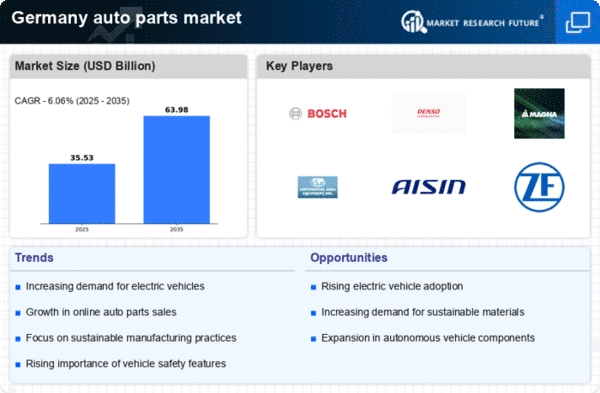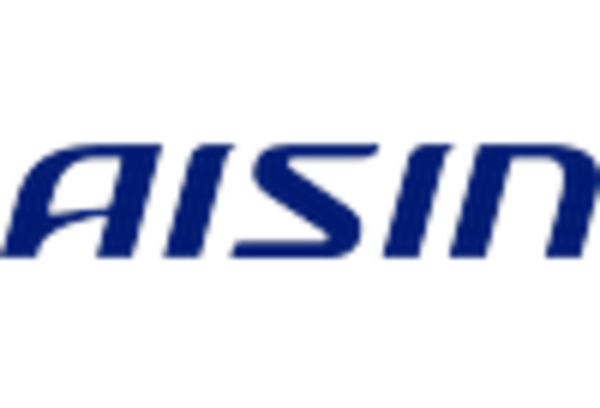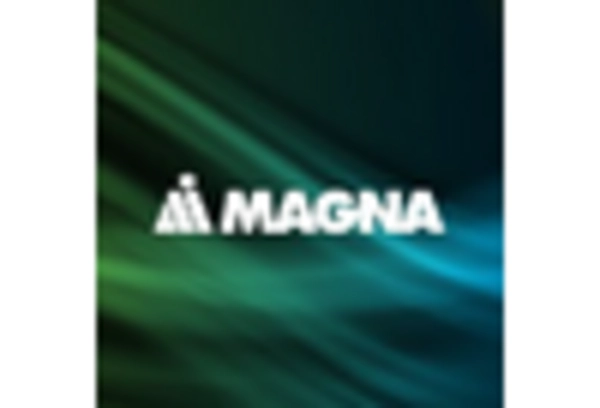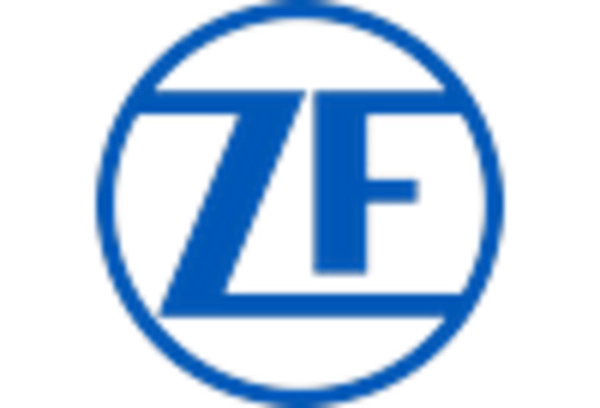Increasing Vehicle Production
The auto parts market in Germany is significantly influenced by the rising vehicle production rates. In 2025, the country is expected to produce around 4 million vehicles, which directly correlates with the demand for auto parts. This surge in production is attributed to both domestic consumption and export opportunities. As manufacturers ramp up their output, the need for high-quality components becomes paramount, thereby driving growth in the auto parts market. The automotive sector's robust performance is likely to stimulate investments in parts manufacturing, further enhancing the market landscape.
Regulatory Compliance and Standards
The auto parts market in Germany is shaped by stringent regulatory compliance and standards aimed at ensuring safety and environmental sustainability. The European Union has implemented various regulations that require auto parts to meet specific quality and safety benchmarks. Compliance with these regulations often necessitates significant investment in research and development, which can be a challenge for smaller manufacturers. However, adherence to these standards can enhance product credibility and marketability, potentially leading to increased sales in the auto parts market. As regulations evolve, manufacturers must adapt to maintain competitiveness.
Growth of E-commerce in Auto Parts Sales
The auto parts market in Germany is witnessing a significant shift towards e-commerce, which is reshaping how consumers purchase automotive components. Online platforms are becoming increasingly popular, providing consumers with greater access to a wide range of products. In 2025, e-commerce sales in the auto parts sector are projected to account for nearly 20% of total sales, reflecting a growing trend towards digital shopping. This shift not only enhances convenience for consumers but also allows manufacturers and retailers to reach a broader audience. As the market adapts to this trend, it is likely to see increased competition and innovation in online sales strategies.
Consumer Preferences for Quality and Safety
Consumer preferences in Germany are increasingly leaning towards high-quality and safe auto parts, which is a crucial driver for the market. As vehicle owners become more discerning, they tend to favor parts that offer durability and reliability. This trend is reflected in the growing demand for premium aftermarket parts, which are perceived to provide better performance. In 2025, it is anticipated that the market for high-quality auto parts is expected to expand by approximately 6%, as consumers prioritize safety and longevity in their purchasing decisions. This shift is likely to compel manufacturers to innovate and enhance their product offerings.
Technological Advancements in Manufacturing
The auto parts market in Germany is experiencing a notable transformation due to technological advancements in manufacturing processes. Innovations such as automation, robotics, and additive manufacturing are enhancing production efficiency and reducing costs. For instance, the integration of Industry 4.0 technologies is enabling manufacturers to optimize supply chains and improve product quality. In 2025, the market is projected to grow by approximately 5.2%, driven by these advancements. As companies adopt smart manufacturing techniques, they are likely to achieve higher output levels while minimizing waste, thus positively impacting the auto parts market.
















